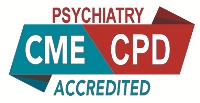Karin Sernec and Gorazd V Mrevlje
University Psychiatric Clinic Ljubljana, Slovenia
Title: Inpatient treatment and family involvement of patients with eating disorders: Experience from Slovenia
Biography
Biography: Karin Sernec and Gorazd V Mrevlje
Abstract
Problem & Aim: Eating disorders (ED) are chronic mental disorders that commonly involve not only patients but their entire families. The involvement of family members in the treatment of ED has been known to have beneficial effects on patient motivation which is partly reflected by the patients’ adherence to the treatment program. The purpose of this study is to assess whether participation of family members in educational support group contributes to the outcome of inpatient treatment. Educational support group for family members is held weekly at the Unit for Treatment of Eating Disorders (UED) in Ljubljana, Slovenia, in addition to the multidimensional inpatient program consisting of group psychotherapy (cognitive, behavioral and psychodynamic), psychodrama, educational groups and music, art and dance/movement therapy.
Methodology: Our retrospective cohort study included patients with ED hospitalized at the UED between January 1st 2010 and December 31st 2015 and their family members. Of the 135 admissions to our inpatient program in this time period, 55 (40.7%) terminated prematurely. Most of these (58.2%) were due to dropout by patients who were insufficiently motivated. We were able to retrieve information about family members' participation during 105 inpatient admissions. In 72 cases, family members participated actively. In 33 cases, family members did not attend the educational support group consistently (two visits or less, mostly none).
Findings: There was a statistically significant, if small, association between whether or not the patient completed our program and whether or not their family members actively participated in the treatment (χ2=6.243, p<0.05, p=0.017, Cramer's V test=0.244).
Conclusions: Those patients whose family members did attend our educational support group were more likely to complete the treatment program. This encourages us to continue to provide education and support to family members of our ED inpatients.

